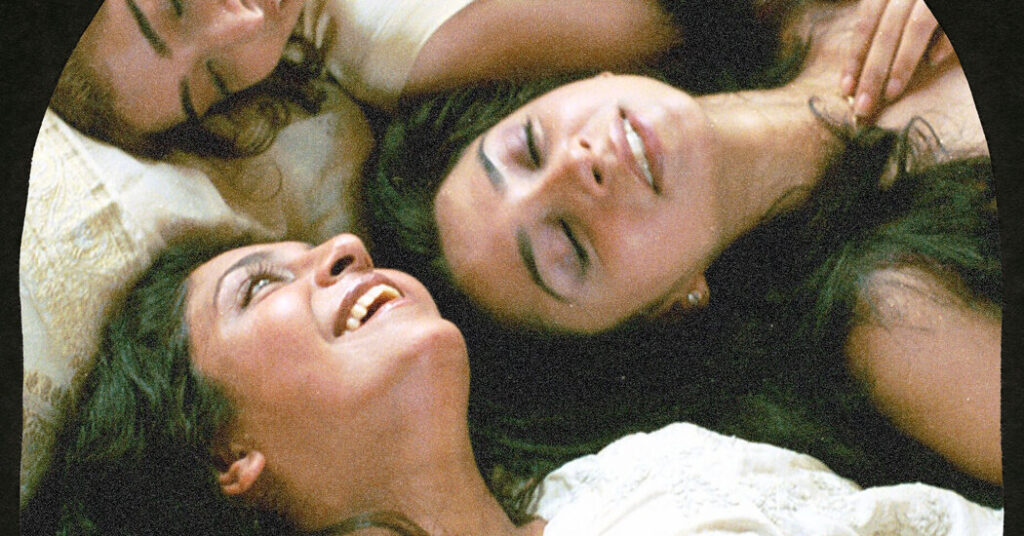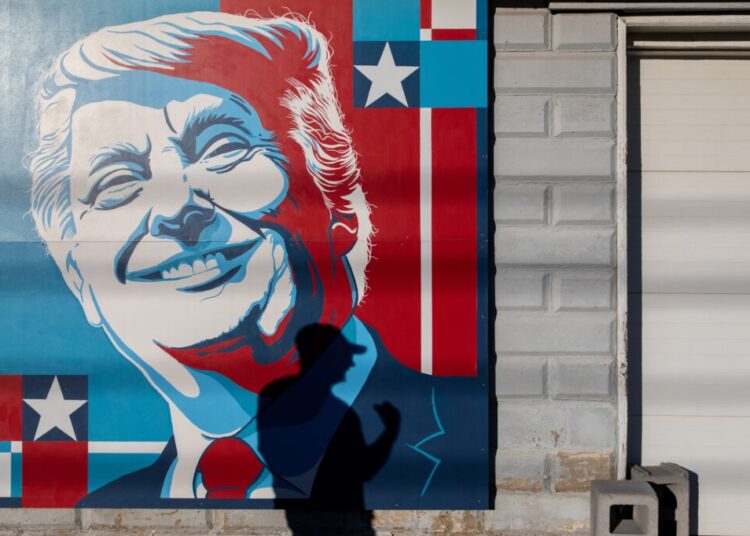Any New Yorker who was alive on Sept. 11, 2001, can tell you where she was that September morning. This New Yorker was out of town, at the Toronto International Film Festival, at an early morning press screening of “Monsoon Wedding.” The movie, a vibrant hubbub of a romantic comedy set in Delhi, had already won the top prize at the Venice International Film Festival, and the film’s director, Mira Nair, had won widespread praise for her previous films “Salaam Bombay!” and “Mississippi Masala.”
Ms. Nair is now perhaps at least as well known for being the mother of Zohran Mamdani, New York’s mayor-elect. Mr. Mamdani — who was 9 years old in 2001 — ran an optimistic campaign that energized a large swath of voters, and also triumphed over an ugly uprising of bigotry and Islamophobia, including unwarranted evocations of 9/11 as a presumed smear against his credibility, only because he is Muslim.
I watched “Monsoon Wedding” again recently. The film chronicles all the things that can go wrong — before they go right — during preparations for a lavish celebration of a traditional Indian arranged marriage. Money affects family dynamics. Secrets come to light. Everybody dances! I was also newly attuned to Ms. Nair’s presentation of gradations of wealth within the extended family, and its depictions of the imperious relationships between the well-to-do and those who work for them. The film’s technique of inserting unscripted shots of throbbing Delhi street life between structured dramatic scenes set in manicured surroundings took on new aspect as I thought of the mayor-elect, whose campaign emphasized his own ease (especially in contrast to his opponents) in the welter of New York City streets. As a movie lover and a New Yorker, I hope Mr. Mamdani can retain that kind of confidence in the midst of tumult, which his mother demonstrated so gracefully in her film, moving her large cast of characters from chaos to unity.
“Monsoon Wedding” is grounded in a culture that, when the film was released in 2001, was likely unfamiliar to many in its audience — it was certainly unfamiliar to many of us who’d gathered in that Canadian movie theater on that September morning. Yet the bonds of family that Ms. Nair depicts are so accessible and inviting that no cross-cultural translation was necessary. And I can recall, 24 years later, how, even at that theater in Toronto, those assembled knew joy when we saw it. We walked out into the world blinking with contentment.
That’s when we encountered people screaming, riveted to TV screens in the lobby of a Toronto multiplex, watching as the twin towers fell, over and over and over, in footage replayed in a loop of horror.
I couldn’t absorb the trauma of those who were caught up in that tragedy at close range. I do know that the agony of those of us who’d traveled to Toronto, so close yet so far from our families, our friends and our beloved, blasted city, was its own trauma. We were New Yorkers first, filmmakers and actors and journalists and critics and publicists a distant second. The festival machinery juddered to a halt. We desperately wanted to get back home. It was temporarily impossible to do so. The airports were closed. The shock reverberated through the privileged confines of the festival hallways, through the hearts of our Canadian colleagues helpless to comfort us, and out through the city streets of a country near, but not our own.
Until this year, when I thought about “Monsoon Wedding,” it was usually as a marker for where-were-you-when. Yet watching the ascent this year of that 9-year-old boy, and the ugliness of the attacks against him as an adult, the loveliness of that little movie, directed by the mayor-elect’s Indian-born mother, has re-emerged for me from the rubble of my memory with a new and clarifying resonance.
I don’t mean to get cosmic about this singular alignment of circumstances. But I do mean to admire how everything resilient and unfathomably hopeful about this city is contained in the crazy math of this coincidence, a calculus that ties together making war and making art, fearing and hoping, mourning and celebration, generation after generation.
In hindsight, of course it had to be a wedding movie — the genre that’s always proved to be a necessary and universal balm. For so many years, post 9/11, our American psyche has been warped by a fear and distrust of other cultures, but the wedding movie, in both rom-com and dramatic form, is an antidote to those isolationist tendencies. That genre is one of the few where global audiences have always agreed to get along, whether through broad farce — I’m thinking of “My Big Fat Greek Wedding” and “Crazy Rich Asians” — or gentle humor, as in “The Wedding Banquet,” Ang Lee’s 1993 film about a gay Taiwanese-born man hiding his sexual identity from his traditional parents. Some of the very best dramas about weddings (and all that comes before and after) have made complicated cultures understandable to worldwide audiences, whether it’s the marital stresses on a middle-class Iranian couple in Asghar Farhadi’s 2011 “A Separation” or the strictures of Orthodox life in Israel in the internationally popular TV series “Shtisel.”
On 9/11, the day New York (and the world) changed forever, a roomful of us were watching an Indian wedding movie across the border from America, cocooned in a shared humanity and optimism that was about to be tested for decades to come. The fact that, nearly a quarter-century later, we might enjoy another moment of shared humanity and optimism, generated by the election of the son of the mother who made that film, is like — well, it hardly seems plausible. It’s like something right out of a movie.
Source photographs by Mary Evans/IFC Productions/Mirabai Films/ KeyFilms Roma/ Pandora FI/Ronald Grant, via Everett Collection.
Lisa Schwarzbaum is a former film critic for Entertainment Weekly.
The Times is committed to publishing a diversity of letters to the editor. We’d like to hear what you think about this or any of our articles. Here are some tips. And here’s our email: [email protected].
Follow the New York Times Opinion section on Facebook, Instagram, TikTok, Bluesky, WhatsApp and Threads.
The post Mamdani, His Mother and a Movie of Prescient Grace appeared first on New York Times.




